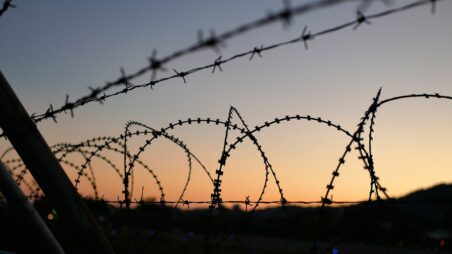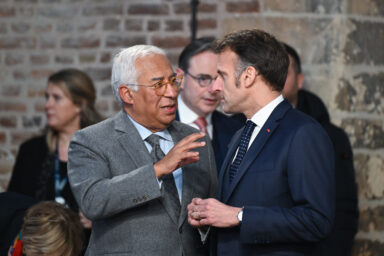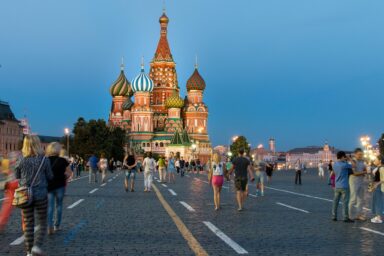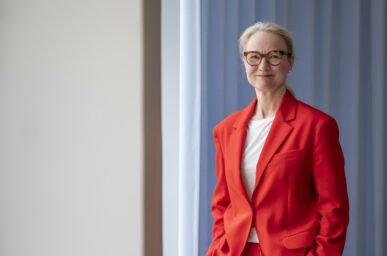Once synonymous with renewable energy and social justice, Europe’s ’sustainable finance’ label is now being applied to weapons. The EU’s approval of the European Defence Fund has stunned ethical banking advocates. They warn that redefining sustainability to include arms production risks eroding decades of progress in responsible investing.
About a decade ago, the European Union decided to frame and define sustainable finance, from a purely environmental perspective. This move has limited the definitions banks and banking institutions would have adopted for themselves.
However, today the concept of sustainability goes beyond the environmental sphere and include the social sphere and worker protection. Banca Etica, an Italian bank belonging to the network of European Federation of Alternative Ethical Banks (FEBEA), maintains that with the von der Leyen Commission, “we are at the ABC of what is an idea of social sustainability— prohibiting slavery and child labor but we have never gone beyond that.”
The road to hell is paved with good intentions
The FEBEA network currently comprises approximately 35 banks spread across Europe, created to meet the historical and social needs of various member states. In the case of the Italian Banca Etica, it was created for the third sector, i.e., to provide credits to the excluded. In the Netherlands, it is linked to climate action. In France, it is intended to create good jobs.
Even though different branches were born from different historical and cultural backgrounds, they share the same underlying principles. In the core lies the idea how to finance the real economy and assess social and environmental impacts.
You might be interested
I can measure how much of a company’s energy comes from renewable sources, but it’s much more difficult to measure respect for human rights with quantitative indicators. – Fondazione Banca Etica researcher Andrea Barbanes
The European Union had started with a taxonomy that was almost exclusively environmental, dedicated to climate. “We understood this choice, firstly because of the urgency of action. There was a political moment after the Paris Agreement. I can measure how much of a company’s energy comes from renewable sources, but it’s much more difficult to measure respect for human rights with quantitative indicators. So we said, ‘The first phase, sustainable finance, is fine, essentially addressing the environment and climate, but then the entire social aspect must also follow, workers’ rights and so on,'” explains Andrea Barbanes, Fondazione Banca Etica researcher
According to Andrea Barbanes, the first von der Leyen’s Commission essentially achieved nothing. Banca Etica hoped that the current Commission would resume the process of the social taxonomy. According to Mr Barbanes, however, this has never been done.
The shift of sustainability
In the context of a European arms race, Mr Barbanes highlights how, for years now, in ethical finance, when discussing sustainability, “the first sector is the exclusion of weapons, followed by gambling, pornography, weapons, tobacco, and alcohol. There are various sectors that obviously recur insistently, but the first has always been the arms sector.”
To date, this is not excluded, and the impact on private and individual finance mechanisms can be very complex. Just think of the strategic and geopolitical implications if a state, for various reasons, says it needs to increase spending on arms. This cannot be left to the mechanisms of private finance of individuals. For arms industry, the more wars there are, the higher profit companies make.
“As an investor, I want peace, but for my investments, it’s better if there’s war. We are putting a price on peace. This is shocking. The logic of which and how many weapons to produce isn’t a country’s geopolitical choice. It depends on a question of returns, of profits. I have to use weapons, and I produce those weapons because they make me more money on the financial markets,” Mr Barbanes explains his stance.
For centuries, there was a word for those who didn’t want to invest in weapons: sustainable finance. From now on, they are telling me that sustainable finance is everything. – Andrea Barbanes, researcher at Fondazione Banca Etica
“It’s truly the fundamental idea of Europe. It was born from individual freedoms, the free movement of capital and financial markets. That also includes free choices of every investor. I have the right to say, ‘I want to invest in one place and not another’.But now they’re stealing my words to do so. For centuries, there was a word for those who didn’t want to invest in weapons: sustainable finance. From now on, they are telling me that sustainable finance is everything,” explains the researcher from the Fondazione Banca Etica.
The paradox of ethics
Even under the assumption that arms race are necessary, this cannot be delegated to the financial markets as a matter of private finance, Mr. Barbanes argues. In his opinion, the lack of information across the EU countries also increases the likelihood that an investor, even if theoretically in favor of ’peace’, would invest in more advantageous stocks. That means into arms companies.
According to Mr Barbanes, the European Union is now putting people who want to adhere to ethical principles while investing in an uncertain position.











